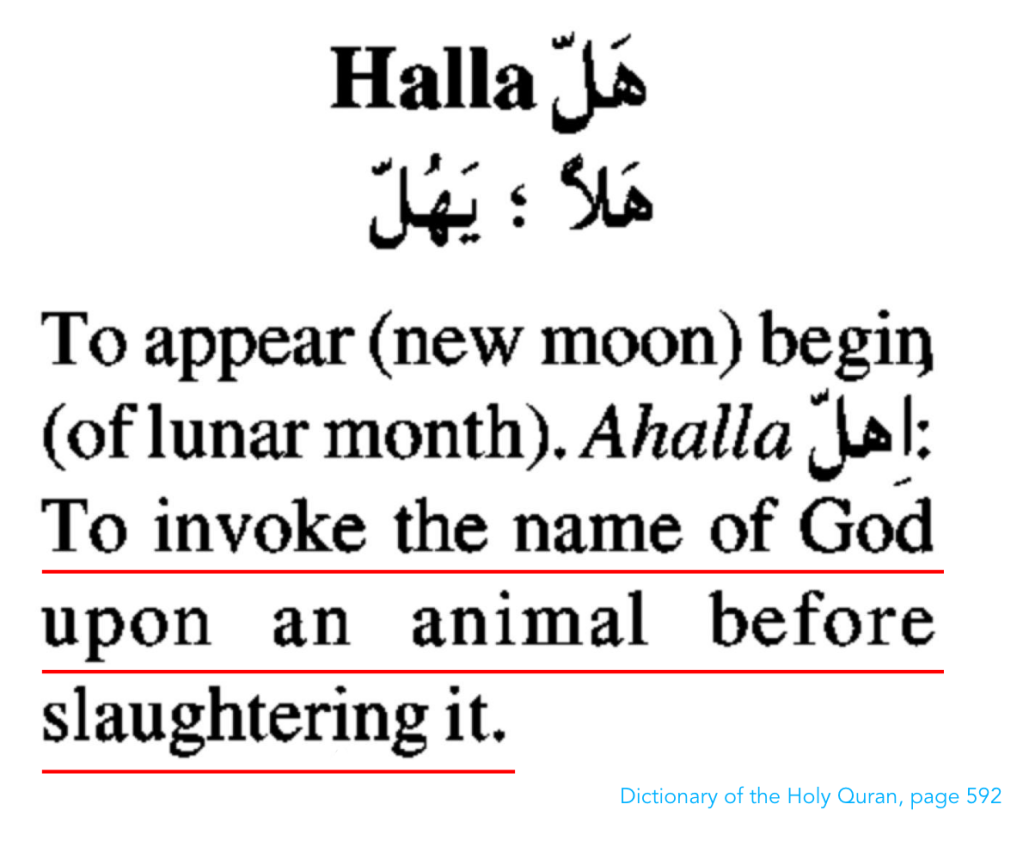A common pagan practice among early Arabs was to set aside a portion of their crops and livestock to their idols.
[6:136] They even set aside a share of GOD’s provisions of crops and livestock, saying, “This share belongs to GOD,” according to their claims, “and this share belongs to our idols.” However, what was set aside for their idols never reached GOD, while the share they set aside for GOD invariably went to their idols. Miserable indeed is their judgment.
وَجَعَلُوا لِلَّهِ مِمَّا ذَرَأَ مِنَ الْحَرْثِ وَالْأَنْعَامِ نَصِيبًا فَقَالُوا هَٰذَا لِلَّهِ بِزَعْمِهِمْ وَهَٰذَا لِشُرَكَائِنَا فَمَا كَانَ لِشُرَكَائِهِمْ فَلَا يَصِلُ إِلَى اللَّهِ وَمَا كَانَ لِلَّهِ فَهُوَ يَصِلُ إِلَىٰ شُرَكَائِهِمْ سَاءَ مَا يَحْكُمُونَ
This practice was so rampant that they had specific names for certain kinds of livestock that they deemed prohibited for eating because they were considered to be dedicated to their idols. This is best depicted in the following verse:
[5:103] GOD did not prohibit livestock that begets certain combinations of males and females, nor livestock liberated by an oath, nor the one that begets two males in a row, nor the bull that fathers ten. It is the disbelievers who invented such lies about GOD. Most of them do not understand.
مَا جَعَلَ اللَّهُ مِنْ بَحِيرَةٍ وَلَا سَائِبَةٍ وَلَا وَصِيلَةٍ وَلَا حَامٍ وَلَٰكِنَّ الَّذِينَ كَفَرُوا يَفْتَرُونَ عَلَى اللَّهِ الْكَذِبَ وَأَكْثَرُهُمْ لَا يَعْقِلُونَ
These different kinds of livestock in the Arabic of 5:103 are not spelled out like they are in the translation, but in the original Arabic it uses the pagan names for these list of animals that the pagan Arabs determined were set aside for their idols and therefore prohibited to be slaughtered for food. These names are the following:
- Bahirah (بَحِيرَةٍ): livestock that begets certain combinations of males and females
- Saibah (سَائِبَةٍ): livestock liberated by an oath
- Wasilah (وَصِيلَةٍ): cattle that begets two males in a row
- Hami (حَامٍ): a bull that fathers ten


The verse is clearly telling us that this practice is a fabrication invented by the disbelievers and was never authorized by God. Therefore, if we follow these pagan practices and also prohibit the livestock that the pagan Arabs have dedicated to their idols by prohibiting others from slaughtering and eating them then we will be empowering the pagans by allowing them to determine what food is lawful and unlawful for the believers to eat. Hence, livestock that pagans dedicated to their idols is still lawful to be slaughtered and eaten by believers, as long as no other name is mentioned besides God when they are slaughtered. This is per the fourth dietary prohibition specified in the Quran.
[6:145] Say, “I do not find in the revelations given to me any food that is prohibited for any eater except: (1) carrion, (2) running blood, (3) the meat of pigs, for it is contaminated, and (4) the meat of animals blasphemously dedicated to other than GOD.” If one is forced (to eat these), without being deliberate or malicious, then your Lord is Forgiver, Most Merciful.
قُلْ لَا أَجِدُ فِي مَا أُوحِيَ إِلَيَّ مُحَرَّمًا عَلَىٰ طَاعِمٍ يَطْعَمُهُ إِلَّا أَنْ يَكُونَ مَيْتَةً أَوْ دَمًا مَسْفُوحًا أَوْ لَحْمَ خِنْزِيرٍ فَإِنَّهُ رِجْسٌ أَوْ فِسْقًا أُهِلَّ لِغَيْرِ اللَّهِ بِهِ فَمَنِ اضْطُرَّ غَيْرَ بَاغٍ وَلَا عَادٍ فَإِنَّ رَبَّكَ غَفُورٌ رَحِيمٌ
It is worth noting that the English word “dedicate” as used in the translation has a broader scope of meaning than the word Arabic word “uhilla (أُهِلَّ)” which is the word used in the four verses specifying the dietary prohibitions, 2:173, 5:3, 6:145, and 116:115.

The word uhilla specifically means dedicating an animal at the moment of slaughter.






Salaam
In your reference used to explain the word uhilla ,it says that the only flesh lawful for consumption is that on which the word بسم الله is pronounced at the time of slaughter. Do you agree with that?
LikeLike
Peace – The entire verse is in the context of livestock, and actually the only time that the word “meat” is actually used is in regards to the “meat of pigs”. So my understanding from this is that uhilla is in the context of the entire animal, just as it is for carrion and the running blood of the whole animal. Here is another article that explains this further:
LikeLike